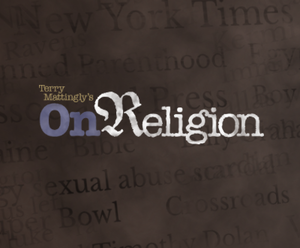Comedians frequently take shots at taboo targets, but that wasn't what Norm Macdonald was doing when he addressed Down's Syndrome while solo recording what became the new "Nothing Special" on Netflix.
"I love people with Down Syndrome," said Macdonald, in a no-audience performance packed with his familiar pauses and bemused expressions. "I wish I had Down Syndrome, and I'll tell you why. They're happy. You know what I mean? …
"What's wrong with that? … People get mad at them … and they pity them. Now, who's the bad person in that scenario?"
The former Saturday Night Life star – who died September 14 after a secret nine-year fight with cancer – recorded nearly an hour of material during the coronavirus pandemic, before yet another operation in the summer of 2020. He said he "didn't want to leave anything on the table in case things went south."
This Netflix finale offers fresh musings on mortality and morality that, with Macdonald's blunt language and haunting images, evolve into meditations on how modern people deceive themselves. The X-factors in his art were religious faith and his love of literature ranging from Mark Twain to Fyodor Dostoyevsky.
"Macdonald showed respect for basically everyone, with the exception of himself and people like O.J. Simpson and Bill Clinton," said Rich Cromwell, a television professional and essayist for The Federalist. "He was not a Christian comedian – that's clear. But that was part of who he was, and he treated faith with respect. …
"This Down's Syndrome material is a perfect example. He didn't turn that into an overt argument about abortion, but it's clear that he is saying all life is worthy of respect, even if some people don't judge that life to be worthy. He's saying people with Down's Syndrome are God's children, no matter what."
"Nothing Special" ends with an A-list reaction panel – David Letterman, Adam Sandler, Conan O'Brien, Dave Chappelle, David Spade and Molly Shannon – who knew Macdonald as a friend and colleague. This special was full of "third-rail stuff," noted O'Brien.
Macdonald riffed on his own "degenerate" gambling sins, his fear of airplane crashes ("Ashes to ashes, stuff to stuff, as the scriptures say"), cannibalism, slut-shaming, racism, transgenderism and his fear of dying and discovering that he picked the wrong religion. He also discusses living wills and giving doctors explicit instructions not to yank "that plug in the wall" in the event of a coma.




